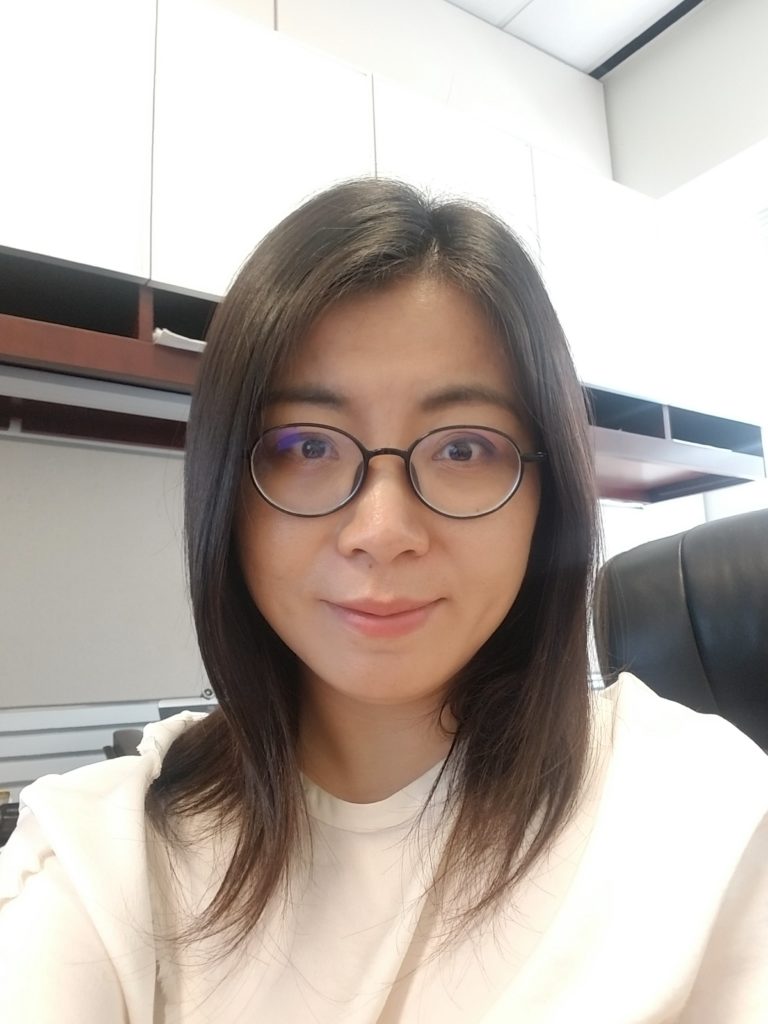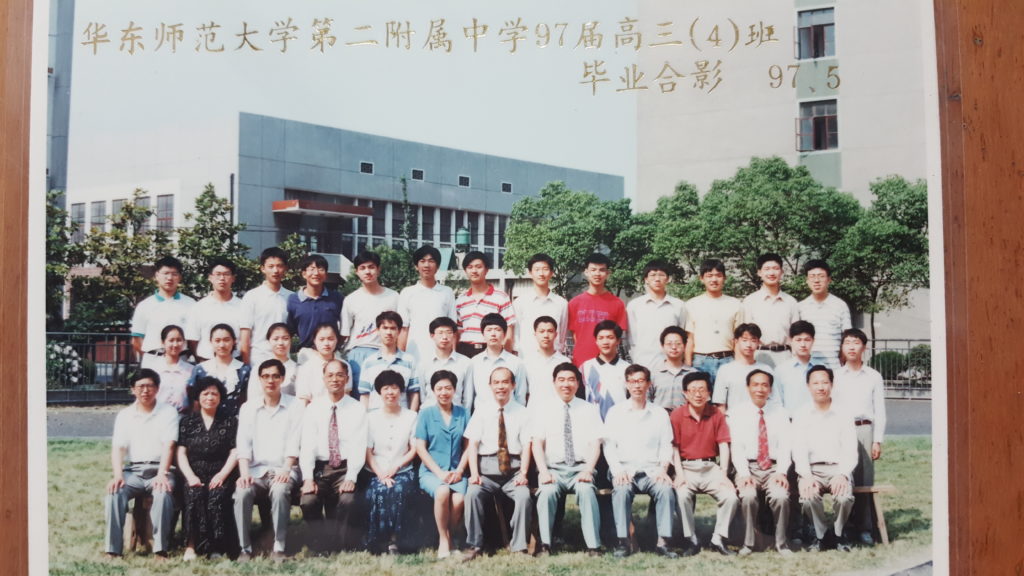Big corporate mergers, acquisitions and joint ventures can often hinge on the meaning of a single term, such as covenants, integration, partnership or exclusivity. The misinterpretation of even the simplest words and phrases can delay, stall or kill a transaction.
When Energy Transfer, the oil and gas pipeline giant with $54 billion in annual revenues, decided in 2018 to expand into China, they needed a savvy corporate M&A lawyer who was an expert in Chinese culture and spoke fluent Mandarin.

Enter Jing Bian. Born and raised two hours away from Shanghai and educated at Harvard Law School, Bian was a fourth-year associate at the elite corporate law firm Latham & Watkins when it represented Dallas-based ETP in a billion-dollar joint venture with a Chinese petrochemical company.
Language and culture, according to lawyers and corporate officials involved, were critical to the partnership coming together. And Bian played an essential role.
“The word ‘OK’ seems easy to understand and clear, but it is not so clear between Americans and Chinese negotiators,” said Bian, who has worked on multiple international transactions. “In Chinese, ‘OK’ can mean ‘let it go’ or ‘let’s table this for now.’ To misinterpret can cause chaos or cause distrust later.”
ET Executive Vice President of Legal Jim Wright said that Bian was a crucial player in the pipeline company’s international deals with a Chinese counterpart in 2018 when she was an associate at Latham. It was the reason the midstream giant hired Bian in January 2019.
“Jing proved very quickly that we needed her on our in-house team if we were going to be successful in growing our international export business,” Wright told The Texas Lawbook. “At Energy Transfer, her background and knowledge of the Eastern culture and her fluency in Mandarin have been very beneficial to our efforts in that regard, including the completion of a joint venture with a China-based company and in opening our office in Beijing.
“In negotiations, she has been very insightful in interpreting the nuances in those discussions in terms of what is said, as well as what was not being said,” Wright said.
Citing Bian’s extraordinary success in less than two years as a lawyer in the ET in-house legal department, the Association of Corporate Counsel’s Houston Chapter and The Texas Lawbook are honored to give the 2020 Houston Corporate Counsel Rookie of the Year Award to Jing Bian.
Thompson & Knight lawyer Angela Herrington, who nominated Bian for the honor, said her friend uses her “near photographic memory of past deals” to help ET get “a great deal on great terms.
“Jing is one of the few lawyers in Texas who has a strong command of speaking Mandarin at a level where she can negotiate both legal and business issues,” Herrington wrote in the nomination. “She didn’t get a near perfect LSAT score in her nonnative language by being a dummy.”
“Jing is analytical and detail-oriented while at the same time always aware of the main commercial goals of her clients,” Herrington told The Texas Lawbook. “Although she is an intellectual person, she naturally takes a pragmatic and commercial approach to getting deals done. She immediately zooms in on the most complex parts of any transaction and tries to understand those parts deeply.”
Christopher Cross, a partner at Latham, said Bian was crucial to the firm’s team when several large China-based energy and chemical companies became interested in Texas opportunities.
“Having Jing on the team meant the U.S. client had a real view into how the other side was thinking, what was not being said but was nevertheless important, how to draft or to negotiate something in a way that gave the Chinese company team the results they needed to show their teams at home,” Cross said.
“Many of the ‘travel teams’ from China were pretty young and very qualified,” he said. “Jing really understood how they approached business and was able at the same time to focus on the finer points of drafting and analysis.
“Jing worked with me on one very demanding JV deal for a large U.S. company with a large China counterparty,” Cross said. “Without Jing’s touch – calm counsel to the clients on how the other side was thinking despite appearances in the negotiating room, how we could craft the contracts to a win-win position – the deal would not have happened.”
Only six years out of law school, Bian has worked on some monumentally significant corporate transactions, including:
- Italy-based Exor SpA’s 2016 acquisition via hostile takeover of reinsurance group PartnerRe for $6.9 billion (“A hostile takeover is so rare these days,” she said. “It involved a lot of strategic planning.”);
- Chesapeake Energy’s sale of its Barnett shale assets to Dallas-based private equity firm Saddle Barnett Resources for $340 million in 2017 (“It took several dramatic turns and offered me the first glimpse of the oil and gas world, including its volatile nature,” she said. “The deal was signed but did not close because Total exercised their preferential rights after signing.”); and
- ET’s joint venture with Satellite Petrochemical in 2018 to develop an ethane export terminal in the Gulf Coast – the deal that led ET to hiring Bian away from Latham.
“Being in-house gives more opportunity to learn the business in-and-out, to handle a variety of legal matters – some of which may not justify Big Law rates but are still very interesting and essential to the business,” Bian told The Texas Lawbook.
“More importantly, in-house gives a feeling of belonging – the feeling of working as a team, with the business groups and other support groups – to achieve a common goal, which is quite different from the law firm model,” she said. “I love that feeling.
“Last but not least, as a working mom, work-life balance and predictability of daily life matter to me,” she said.
Growing Up in China
Bian was born and raised in Taixing, which is in the Jiangsu Province in eastern China. Taixing is a small town near the mighty Yangtze River and is two hours northwest of Shanghai.
“I was an only child due to the one-child policy,” she said. “I grew up during the time China started opening itself up. It was exciting and a bit hectic: Everything in a constant change, with the industrial life meeting the traditional and the East meeting the West.”
Bian said that she and her parents lived in a one-bedroom apartment. She makes it clear that she had a happy childhood and has no complaints.
“Everyone was earning about the same [amount of money],” she said. “We had enough to eat but no TV, no air conditioning, no everything. It was not better than, and not worse than, the childhood of most people of my generation in China.”

Jing Bian and her high school graduating class
Bian’s father was a manager at a local factory, and her mother was a middle school English teacher. In fact, she learned English from her mother.
“All Chinese students are taught to learn English because English speaking countries are so dominant,” she said. “Now, China starts teaching children English in kindergarten.”
Both of Bian’s parents are retired and live in China, though her parents are in Texas now and have been since the start of the COVID-19 pandemic.
“They came to visit and now they are stuck here because there are no flights home,” she said.
At 14, Bian went to a boarding school in Shanghai and then majored in Chinese literature at Peking University, where she worked full-time writing short novels for magazines, tutoring other students and doing computer programming, even as she took a full load of classes.
Bian’s first job after college was as an investigative reporter for the South Metropolitan Daily for two years and then the Beijing News for five years. One of her assignments was the SARS pandemic.
“It was walking a fine line in China being a journalist,” she said. “Our reporting of SARS was blocked many times by officials because SARS was a politically sensitive subject.”
Frustrated, she moved to the newspaper’s sports department to be an editor.
In 2008, Bian convinced her boss to allow her to move to the U.S. as her newspaper’s North American editor and bureau chief. Her high school boyfriend had moved to the U.S. to go to law school.
Litigation or Corporate Transactional?
In 2011, Bian started law school at Harvard.
“It offers terrific legal education and is located in a beautiful city, rich in history,” she said.
Bian originally planned to be a litigator.
“The first year in law school was all litigation oriented. It was about making and perfecting argument,” she said. “When I thought of lawyers, I thought about them in court arguing a case.”
During her second year of law school, she discovered that she preferred transactional work because “it was not contentious, and it was about getting things done.”
After clerking for one year with U.S. District Judge Lee Rosenthal of the Southern District of Texas in 2014, Bian worked for nearly two years as a corporate associate at Paul, Weiss, Rifkind, Wharton & Garrison in New York.
“I was undecided between litigation and corporate at that time, and Paul, Weiss is strong on both regards,” she said. “I also felt like it would be a good fit for me culture-wise. In addition, at that time I could not rule out the possibility of going back to practice in the Asia market a few years down the road, and New York experience, deservedly or not, is generally accepted as more transferable.”
When Bian’s husband landed a job in Houston in 2016, she joined Sidley’s operation in Houston for one year and then jumped to Latham in April 2017.
“Sidley was expanding its Houston office, [and] it is very strong in both O&G and PE, and M&A and private equity deals were my focus when working in New York,” she said. “So, skill-wise, it was also a good fit.”
Bian said she moved to Latham “to further broaden my experience by getting more exposure to public M&A and public company representation.”
Getting ETP’s Deals to the Finish Line Faster
Latham partners assigned Bian to work on ETP’s joint venture with Satellite Petrochemical in 2018. Bian worked firsthand with some of ETP’s business leaders, whom she found to be “super smart and easy to work with.
“I also really enjoy the work here – a lot of transactional work is actually handled in-house, is complicated and covers a broad range,” she said. “ET is ramping up its export capacity, going through terminal expansions and having more foreign customers coming in. I helped work on these areas.”
Jim Wright, ETP’s general counsel, said some lawyers have difficulties transitioning from a law firm to an in-house role. He said Bian understood that “earning the trust of the business people takes time.”
“Jing assimilated into the in-house world at Energy Transfer very quickly to earn the trust of the business people she supports by being responsive, thoughtful and hard-working,” Wright said. “Jing is very commercially astute and is an active listener. As such, she is able to think and react quickly after identifying legal issues.
“In negotiations, she is solutions-oriented and brings value to the deal team by being creative to assist in achieving commercial goals while protecting the company,” he said. “As a result, Energy Transfer has increased the speed of closing commercial deals.”
“Jing’s cultural diversification has made her a key contributor on the team tasked with increasing Energy Transfer’s LPG export business,” Wright said.
Bian said that she has done her fair share of due diligence during her first six years of practice.
“I had some love-and-hate moments I will never forget,” she said. “While I don’t enjoy due diligence, the importance of [due] diligence is probably paramount in an M&A deal in terms of helping learn the business, identify deal-breakers, evaluate the potential ‘give and take’ trade-offs and form negotiation strategy.”
The most enjoyable part of M&A deals is the negotiation against the other side, which she describes as an art.

Jing Bian with family — her parents, husband and son on vacation at Antelope Valley
“What I enjoy the most is the internal discussions in preparation of cross-the-table negotiations, especially when negotiation hits obstacles or approaches an apparent impasse, how the whole team brainstorms together to evaluate risks, either to find a way around or to decisively postpone or even call off a deal,” she said.
Wright said that Bian “never allows a task to be hanging over her head for very long.
“She’s the only person I’ve ever met who went to Harvard who doesn’t tell you that she did,” Wright said.
Bian said that it was not “love at first sight” for her when it came to Houston, but it is now “love for life.”
“Texas’ highways test my driving skills every day,” she said. “Other than that, I love Texas and, specifically, Houston.”
Bian, who is going through the U.S. naturalization process, said she would suffer from “reverse culture shock” if she moved back to China.
“I miss the food and everyone speaking my native language,” she said. “But Houston has one of the best Chinatowns in the U.S. – better than New York or Boston.”
Adds Cross from Lathan, “Jing proves the adage that nice people can finish first – being a great team member doesn’t mean the counterparty can afford to underestimate her. They do so at their own peril.”
